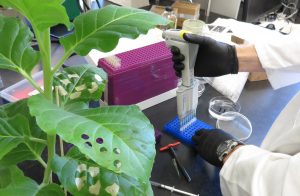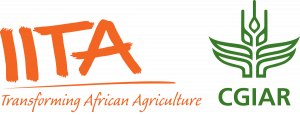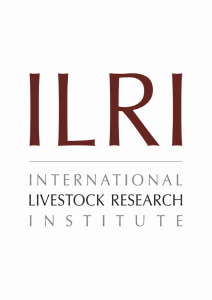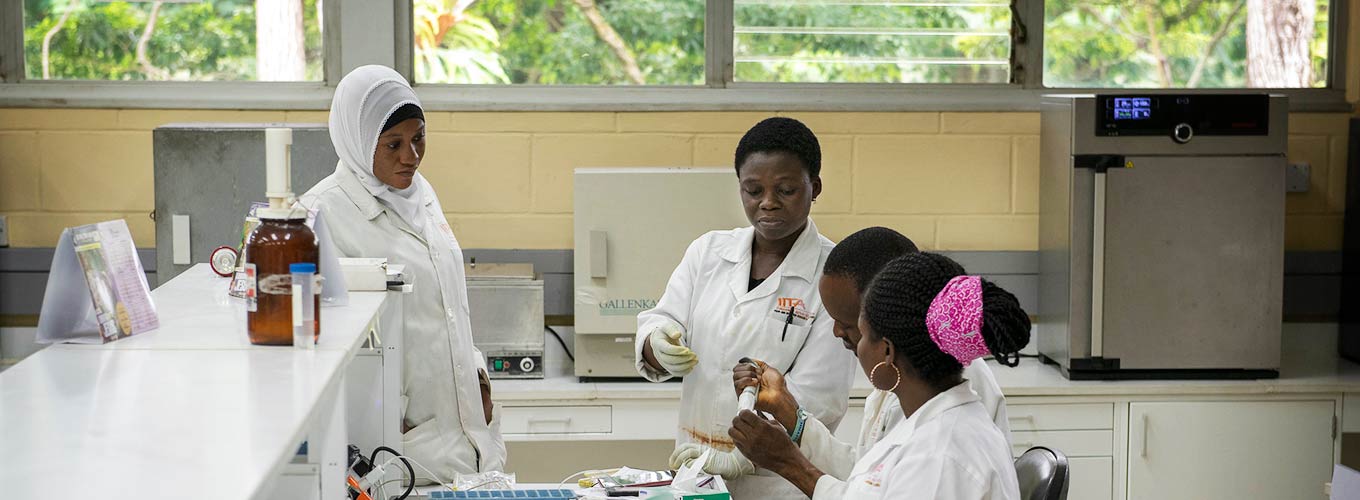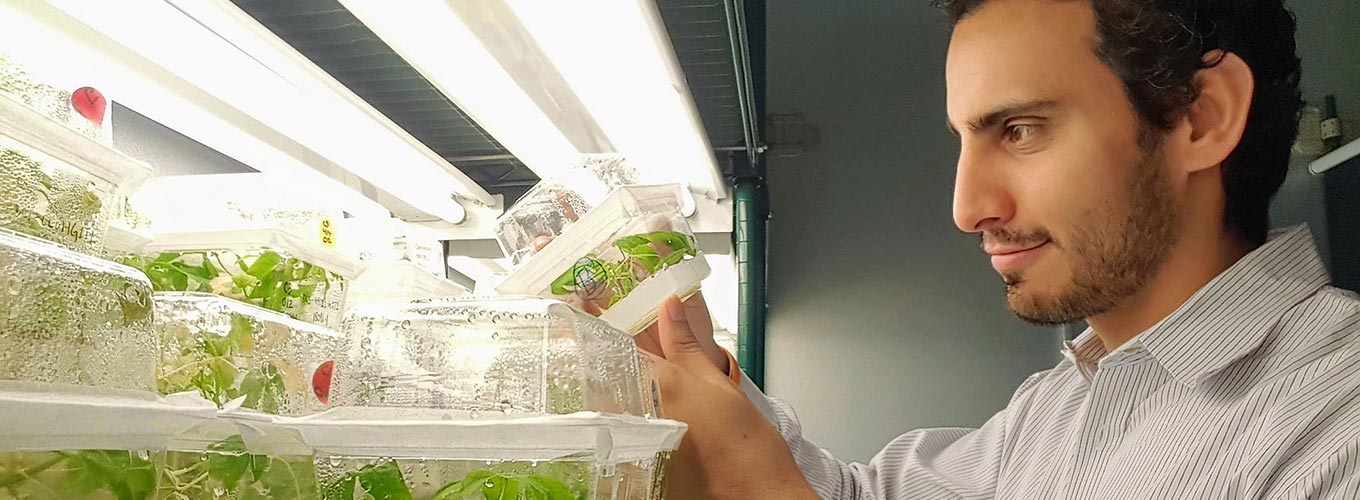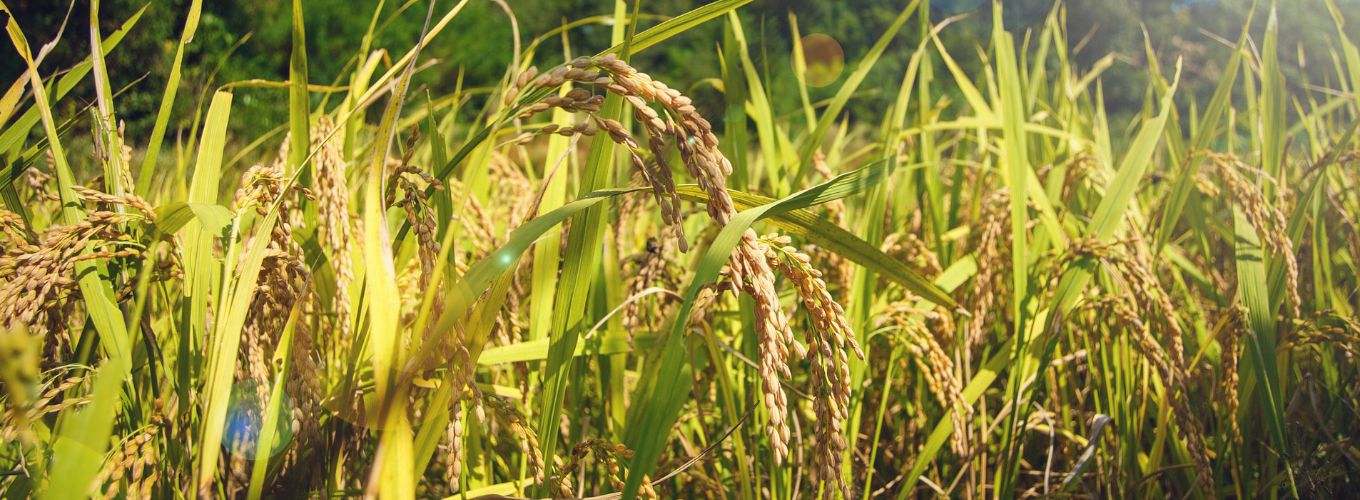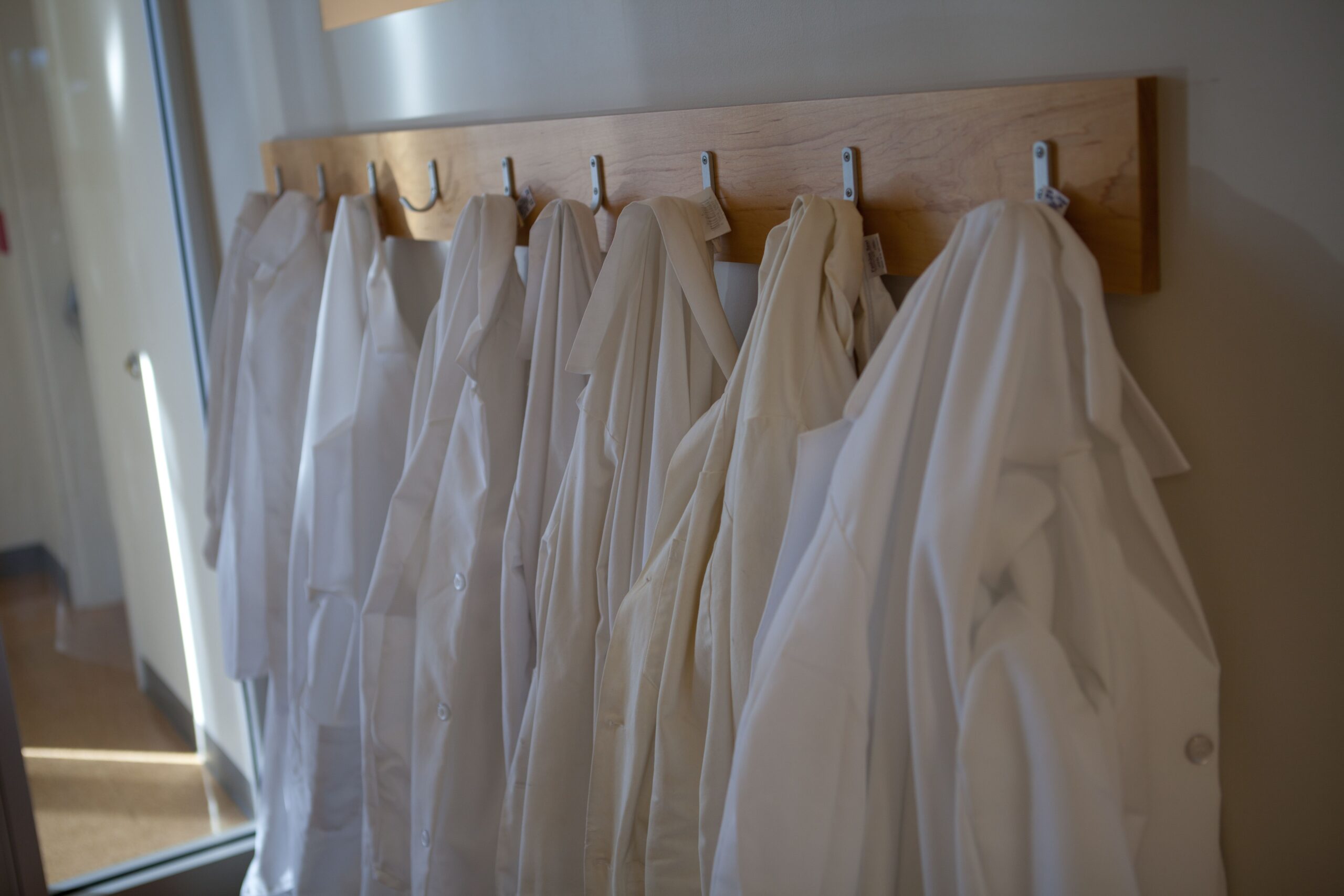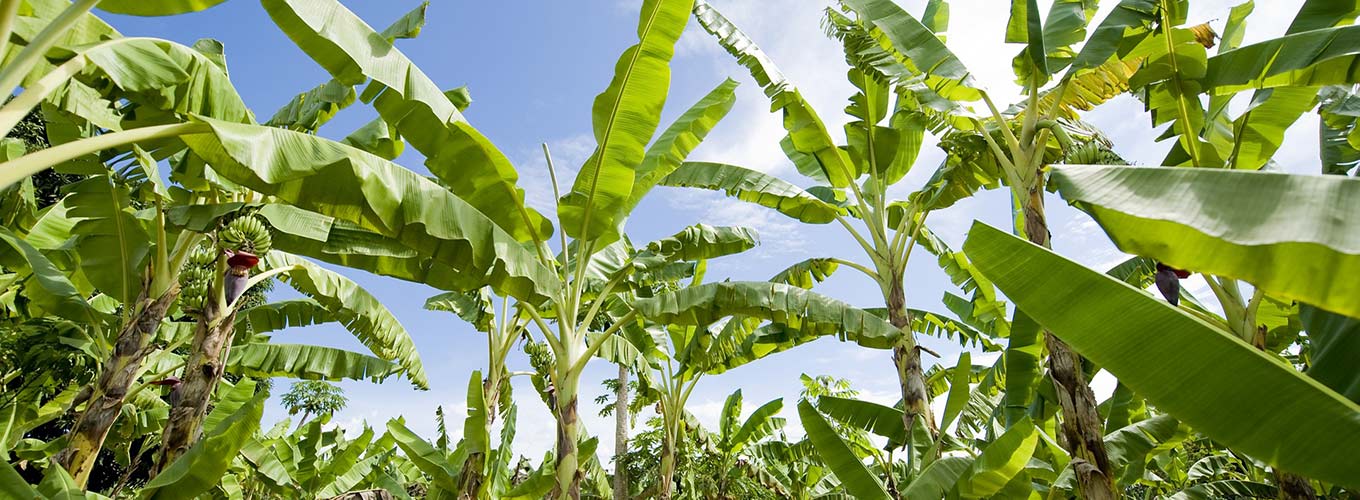
IGI Partners with African Plant Breeding Academy for New CRISPR Course
The Innovative Genomics Institute is partnering with the African Orphan Crops Consortium (AOCC), the Seed Biotechnology Center at UC Davis, and the International Institute of Tropical Agriculture, to introduce a new course on CRISPR genome editing in agriculture as part of the African Plant Breeding Academy (AfPBA). It will empower 80 to 100 African scientists to implement genome editing technologies to fast-track engineering of vital traits in food crops.
CRISPR holds huge promise for plant breeders to make precise genetic changes, providing a new tool to help farmers rise to the challenges of a changing climate and rapidly growing population.
Training African molecular scientists
The goal of the AfPBA CRISPR course is to train molecular scientists engaged in crop improvement, particularly those working in national programs at institutions seeking to implement or initiate gene editing programs.
“When I think about where we are likely to see the biggest impacts of CRISPR over time, I really think it’s going to be in agriculture, because agriculture impacts everyone,” says IGI founder Jennifer Doudna.
The course is an intensive 6-week program delivered in three 2-week sessions over a period of a year at World Agroforestry and ILRI in Nairobi, Kenya. It focuses on the steps to accomplish genome editing from design through validation. Using banana as a model plant, participants formulate targets, design plasmids, perform trait delivery to cells, regenerate plants, and validate results. The course prepares participants to develop key traits (e.g., nutritional content, disease resistance, longer shelf life) in crops aligned to their own national and institutional priorities.
A unique element of this program involves mentorship and lab startup support after the course is completed, as well as the opportunity to build translational partnerships for commercialization and value chain development.
The course leverages DNA sequence information being amassed by the AOCC on 100 African orphan crops, which include a diversity of vegetable, fruit, nut, legume, oilseed, cereal, and tree species. Furthermore, it emphasizes the role of CRISPR in the overall scheme of cultivar development and in addressing the needs of smallholder farmers. It will support a Community of Practice strongly linked to the disciplines required for product launch, seed distribution, and farmer adoption.
Who should attend?
The course is targeted toward molecular scientists currently engaged in national programs in Africa in institutions that are willing to embark on gene editing research. Priority will be given to those from countries where AfPBA plant breeder alumni are working, as we promote the formation of multi-disciplinary teams in crop improvement. Attendees can be working on any crop.
For more information please see the course website.
Thanks to the generous support of Bayer and other donors, attendees are invited on full scholarship based on applications for each class; class size is limited to 20 participants.
Partners in Delivering the AfPBA CRISPR Course






